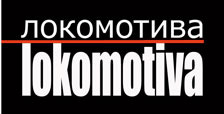Program of Lokomotiva in Kino Kultura
Art Spaces and Residencies Summit/ Thoughts and reflections
“Reflection on Summit”
Text by Jan-Philipp Possman
When meeting in Skopje, it is impossible to ignore what has been going on in the city over the last decade. I wonder if Skopje is a symbol of some sort or an omen of things to come. Maybe Skopje 2014 is only almost hysterical over exemplification of a dangerous new European idea: heritage can be destroyed, memory is weak, history can be reinvented and European identities are currently rewritten. I am thinking about the survivors of the holocaust who will have died in the coming years. I am thinking about all these new/old ideologies in Germany: the resurgence of „Blut und Boden“ (blood and soil), back to nature/ to the village, the reconstructive architecture in the city centers of Berlin and Frankfurt, the neo-fascist language in the government, green conservatism, and so forth.
So I am highly ambivalent about this role of locality (and history connected to locality). As artists, who understand their profession and their professional identities as inter- or trans- or maybe even post-national, we all have a rather loose connection to locality. We need to – out of economic reasons (go where the money is) – but also out of artistic ones: we need the input, the co-operations, the exchange. The local scenes are usually too small to build upon. The artist Sarah Vanhee repeatedly turned down my efforts to lure her to our art space, because she recently decided to focus working in her home town Brussels. Much to my annoyance! But how could I blame her?
So the Summit in Skopje resonated strongly with my own professional and personal questions at the moment. As a director of an art institution, I wonder how far I can move the institution from art to social and neighborhood work, without losing authenticity and functionality. With the director and visual artist David Weber-Krebs I have been working on the idea of a series of events focusing on the following question: Do the things have a place? Starting from our ongoing reflection on the nature of live arts, we think, it might be possible to connect many of the current political questions through this question: climate change, migration, and displacement, digitization/virtualization, art restitution, border regime, identity politics.
I think this examination of the role of locality is a very useful and fruitful path to follow further as a network. Because I think that locality lies at the heart of the question of ownership, role, and audience – “how do we as art workers relate to the larger society?”. It is definitely not the only question and I don’t suggest neglecting artistic and aesthetic perspectives and issues. In fact, I believe a place to be a central category for artistic work. And speaking for myself, I have neglected or over-simplified this category for quite a long period of my professional life.
January 19th, 2020
Jan-Philipp Possmann studied Theater- and Political-Sciences at Freie Universität Berlin. From 1999 to 2007 he directed and produced theater performances in Berlin. As dramaturg and producer, he has worked with international artists like Rimini Protokoll, Patrick Wengenroth, David Hermann and repeatedly with David Weber-Krebs.
From 2005 to 2007 he curated and directed the international performance festival Plateaux at Künstlerhaus Mousonturm in Frankfurt/Main. 2007/2008 he was the house dramaturg of Sophiensaele, Berlin. In 2007 and 2009 he was the festival dramaturg for Internationale Schillertage. Currently, he is a dramaturg at Nationaltheater Mannheim. In his research project, he collaborates with David Weber-Krebs.
http://encyclopediaworldart.wordpress.com
www.nationaltheater-mannheim.de
Art Spaces and Residencies Summit is organised by Lokomotiva – Centre for New Initiatives in Arts and Culture in the framework of the yearly program “Contemporary culture and public policies” 2019, developed as part of the project “Program of Lokomotiva in Kino Kultura – project space for contemporary performing arts and contemporary culture” supported by the City of Skopje, Ministry of Culture of North Macedonia and Centar Municipality and Life Long Burning, programme line Performance situation room supported by Creative Europe.

